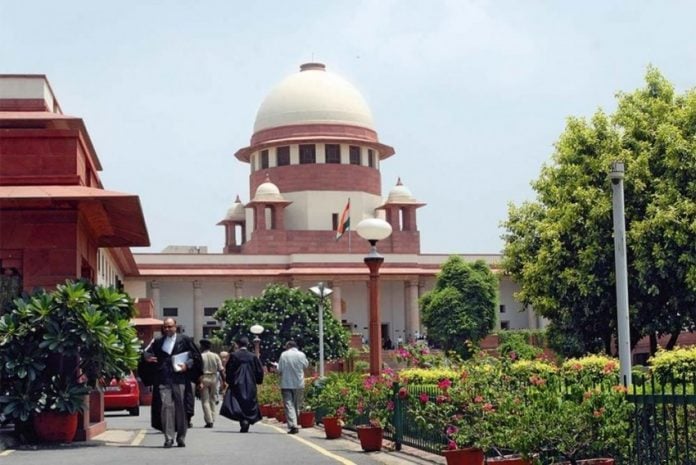The Supreme Court of India on Monday has stayed the Delhi High Court in which it directs the Union of India to pay the salary to the Medial Researchers under Ayush Ministry for the period of work already done by them beyond the age of 60 years as they are entitled to the benefit of enhanced retirement age of 65 years, which has been extended to Unani doctors treating patients.
The Three Judges bench comprising of Justice D.Y. Chandrachud, Justice Hemant Gupta & Justice Ajay Rastogi heard the matter whereby the Court directed the High Court to hear the matter expeditiously, as Delhi High Court is still seized of the matter.
Delhi High Court on 23rd January, 2020 had said that the interim order passed by the High Court on 12th September 2018, is modified to the above extent of requiring the Respondents to pay the salary to the Petitioners-respondent in Supreme Court for the period of work already done by them beyond the age of 60 years, subject to each of them filing an undertaking that they accept the salary so paid, subject to the further orders that may be passed by this Court, at the time of final disposal of these petitions. The affidavits of undertaking be filed within two weeks from today. On filing of such an undertaking, the salary due to them, including the current salary, will be released to each of the Petitioners by the Respondents within a further period of two weeks thereafter.
The Delhi High Court also found that the expression “doctors‟ used in Clause 56 (bb) has not been defined. Prima facie it does not appear to exclude those doctors working as Research Officers, either in AYUSH or under the Ministry of AYUSH.
Delhi High Court order issued on 12th September 2018 says-;
“That being the position, it is directed that the petitioner shall continue to discharge her duties with the respondent no.3 during the pendency of the present petition without receiving any remuneration. The release of the salary to the petitioner shall be considered at the final stage”.
Before the Delhi High, the case of the Petitioners is that since the Fundamental Rules/ Supplementary Rules (FR/SR) that govern the services of the Central Government employees, ipso facto apply to doctors working in the AYUSH and institutions, organizations and hospitals thereunder, they are entitled to the benefit of enhanced retirement age of 65 years, which has been extended to Unani doctors treating patients.
It was brought to the notice of the High Court that the duties assigned to the Petitioners as Researchers includes treating patients. For this purpose, attention is drawn to the Annual Performance Appraisal Review (“APAR‟) of one of the Petitioners (Dr Salma Khatoon), which refers in column 5(a) of Part-I to her having treated 4500 patients in the OPD in a span of 150 days. It is pointed out that as part of the job profile of the Petitioners, they are in fact required to treat patients and, therefore, they cannot be treated any different from the Medical Officers or other doctors.
–India Legal Bureau


